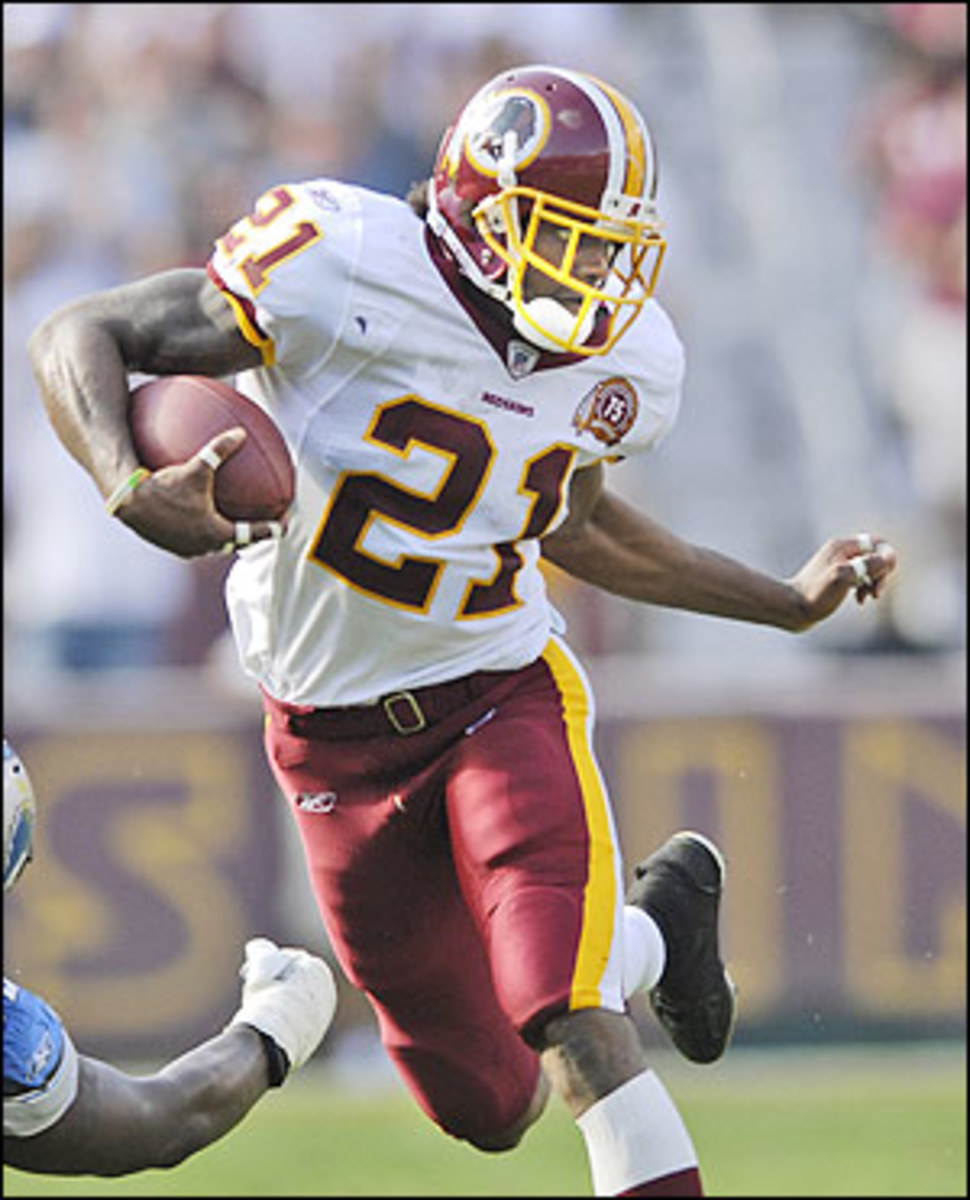
A big hit
Young and old, in burgundy and gold, they have gathered in Redskin Park today, huddled around a parking spot adorned with the number 21. Players are trickling in. No one is saying a word because no one has to. All throughout Washington, D.C. there are signs of remembrance. At one high school, there are scores of people decked out in burgundy and gold. The sky couldn't be a more threatening shade of grey, but no one is moving.
"I don't want to hear it. I just don't want to hear it," one man says. We all know what he doesn't want to hear. Sean Taylor is dead. That's the immutable, unshakable fact. A gunshot wound to the femoral artery claimed Taylor's short life at age 24.
Often we see football players as superheroes that magically appear on Sundays to entertain us. But these are people with families, friends, and communities that depend upon them. Sean Taylor had an 18-month-old daughter. Thirty members of his extended family were grouped outside of his hospital room when he was pronounced dead. Their loss should be foremost in our minds and prayers. Basic humanity should dictate that this is their tragedy first.
But the bizarre, irrational part of all of this is that it's unquestionably our tragedy too. This isn't a Peyton Manning or Reggie Bush; someone who has presented a highly buffed familiar face for us to cozy up to. Taylor treated the media like Superman treats kryptonite. Off the field, he was a cipher, a phantom. We knew him with his helmet on, no more, no less.
And yet, in front of Redskin Park, on sports radio, on my cell phone, people are expressing a terrible, ineffable sadness. Talk radio in particular has been harrowing. Grown men are calling with a catch in their voice. Tough sports radio announcers, ex-jocks who usually treat emotion with abject contempt, are breaking down. We didn't know Taylor, but we still knew him.
Over the last year, I have referenced Taylor repeatedly in columns. His unique skill set made him especially evocative.
Once I wrote: "The game is changing: Players today are bigger, stronger and faster than even 10 years ago ... Washington Redskins safety Sean Taylor weighs 235 pounds and runs 40 yards in less than 4.5 seconds. His job as safety is to do more than protect his defensive backs: It's to find people with the ball and with his scary combination of speed and power, remove their senses from their body."
Taylor was evolution writ large on the field: a linebacker who ran like a wide receiver, and hit like a truck. He was Magic Johnson running the point at 6-foot-9, a 7-foot Dirk Nowitzki nailing threes; he made us think we were watching the future. It wasn't for nothing, they called him "Meast" -- half man half beast.
Today Taylor becomes not an exemplar of power and grace, but a petrified snapshot of tragedy. There will be time to discuss what Taylor's death means, about whether it is related to previous transgressions with the law. Taylor, the son of a police chief, certainly never shied away from trouble.
There will be time to discuss the modern phenomenon of athletes becoming attractive targets of violent crime. There will be time to wonder how we can feel this death so strongly while so many others pass unnoticed -- from the Middle East to our own cities. It's hard not to notice that on a day when we all weep for Taylor, a report comes out that Washington, D.C. has the highest HIV rate of any city in the country, "a modern epidemic." As history's mass murderers knew all too well, it's hard to weep for statistics, so we weep for Sean Taylor.
This dynamic became all too clear on sports radio this morning. I heard a host speaking with a young man from Prince George's County, Md. The caller spoke to hearing gunshots constantly in his neighborhood. He said that it doesn't even faze him anymore, doesn't even interrupt his sleep. He spoke with a creaky voice about Taylor's death making him realize just how sad it is that he's so calloused, he doesn't even think about who is doing the shooting and where the bullets might be heading. The host was floored. After expressing his shock that gun shots could possibly go unnoticed he said, "If nothing else [Taylor's death] gives us a face of what goes on in America 24 hours a day."
He's right. But today there is only grief. Grief that Sean Taylor will -- in the most obscene possible fashion -- be forever young.





